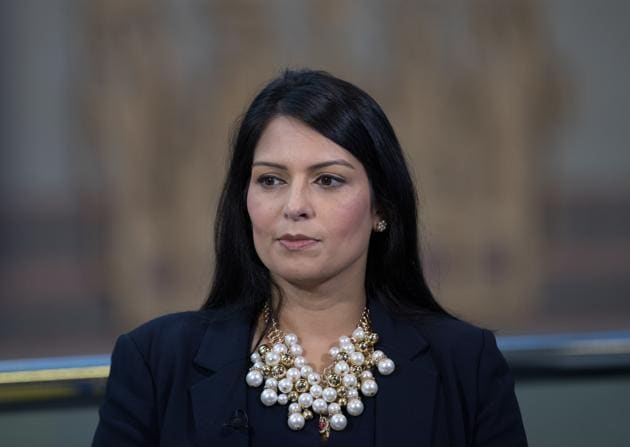Record 3 in Boris Johnson cabinet: Indians in UK come a long way
Boris Johnson appointed Priti Patel as the home secretary and Alok Sharma as the international development secretary. Rishi Sunak does not have cabinet rank but as the chief secretary to the treasury, will attend cabinet meetings.
From the first Indians elected to the House of Commons in the 1890s to as many as three ministers at the cabinet table now: the Indian community has come a long way, reflecting its growing influence as well as the way Britain is more accepting of non-whites in positions of power.

Prime Minister Boris Johnson appointed Priti Patel as the home secretary and Alok Sharma as the international development secretary. Rishi Sunak does not have cabinet rank but as the chief secretary to the treasury, will attend cabinet meetings. The Indian-Asian ‘tadka’ to the cabinet includes Pakistan-origin Sajid Javid as the chancellor.
CB Patel, publisher and community leader, says he is not surprised at the appointments: “It is not tokenism”, while Sunder Katwala, director of think-tank British Future, believes ethnic diversity has become the ‘new norm’ in British politics.
Questions have been raised about the fate and longevity of the Johnson government given the Brexit minefield ahead, but the sub-text of the change of government in London is a new high for the 1.5 million-strong Indian community’s engagement with British politics.
“It is high time the contribution of large Indian and Asian communities is recognised. This started slowly, it still needs better representation in politics, but the British society is now more comfortable with non-white politicians,” says industrialist Swraj Paul, member of the House of Lords.
Dadabhai Naoroji (Liberal party) was the first Indian elected to the House of Commons in 1892, followed by Mancherjee Bhownagree (Conservative) in 1895. Thereafter, decades passed without any Indian representation, until Keith Vaz (Labour) was elected in 1987.
The upsurge in the Conservative connect with the community was led by David Cameron who, as leader and prime minister, went out of his way to woo the Indian vote as well as drive ties with India. He ended Britain’s boycott of the Gujarat government in 2013 over the 2002 riots in the state.
Katwala says: “There is more ethnic diversity around this cabinet table than across the rest of British political history put together. It shows a remarkable shift over the last decade in ethnic diversity becoming a ‘new norm’ in British politics, across both of the major parties”.
“No British Asian woman had ever been elected to the House of Commons before Priti Patel was elected in 2010, so her appointment as Home Secretary in one of the great offices of state shows how much has changed in a short period of time,” he adds.
Patel, publisher of ‘Gujarat Samachar’ and ‘Asian Voice’, believes that the appointments are a ‘calculated move’ on Johnson’s part, given that Britain will need India in the post-Brexit situation. During officials talks, having ministers such as Patel and Sharma will be advantage: “Priti Patel is close to Modi”.
The appointments are also seen as the inevitable outcome of the Conservative party increasing its vote share from the Indian community in recent elections, mainly driven by the professional, aspirational children of earlier migrants born and brought up in the UK.
Katwala says: “It is partly a story of political change - but it reflects a broader social change. The first British-born generation of children to Indian and other Commonwealth migrants, who often grew up in the 1980s - have an expectation of the possibility of educational and professional success going to the very top of public life”.
“This Cabinet reflects a British success story of integration in one generation that has not yet been emulated in other European societies…(These) appointments demonstrate a clear determination that Boris Johnson does not wish to be a ‘British Trump’ and that he wants his party to compete for the hopes, aspirations and votes of British Indian voters and other citizens from ethnic minority backgrounds”.






